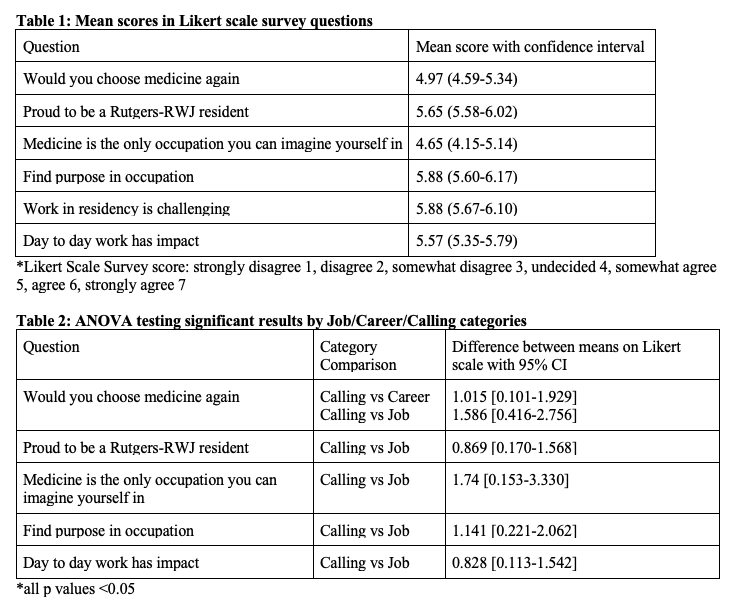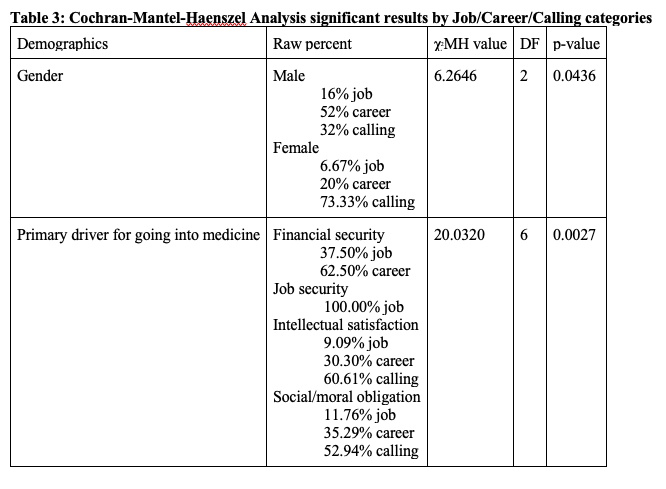Background: Based on the study “Jobs, Careers, Callings: People’s Relations to their Work,” we wanted to see whether how residents intrinsically view their occupation affects their work engagement and burnout. We used the same three categories: “job” defined as viewing your occupation as a means to an end, “career” as focusing on advancement and prestige, and “calling” as seeing your occupation as an integral part of your identity.
Methods: We conducted a survey of internal medicine residents in the Rutgers-Robert Wood Johnson program that included questions on demographics, a two item assessment of burnout, Likert scale questions on work engagement, and a descriptive question validated to sort individuals into whether they view their work as either a job, career, or calling. The results were analyzed using one-way ANOVA and Cochran-Mantel-Haenszel (CMH) statistics.
Results: 60 residents completed the survey: 25 were male and 15 were female. In the two item burnout assessment, 71.6% scored positive. With the Likert survey questions scaled from 1-7 (1 indicating strongly disagree, 4 indicating undecided, and 7 indicating strongly agree), means are reported in table 1. 10 residents identified medicine as a job, 21 as a career, and 29 as a calling. ANOVA analysis comparing survey questions between the three categories are reported in table 2. These results were also significant by CMH analysis. CMH analysis showed a correlation between gender and primary driver for going into medicine with the three categories as seen in table 3.
Conclusions: The survey questions were based on factors regarding work engagement, including finding work challenging, believing day to day tasks left impact, finding purpose in the work itself, and being proud to be part of a larger company. We found that females were more likely to identify medicine as a calling, that residents who identified medicine as a calling were more engaged in their work, and those who stated they went into medicine for intellectual satisfaction or social/moral obligation were more likely to identify it as a calling. There was no difference in these measures between those who identified medicine as a job versus a career. Although there was no correlation with burnout rates, which were found to be very high in all categories, it has been shown in other studies that work engagement is correlated with high job satisfaction, happiness scores, and productivity. Determining how people intrinsically view their relation to their work may be a good indicator of how engaged they are likely to be in their occupation. There may a use in determining who would be most likely to be satisfied in medicine and future targeted interventions to help people to shape their viewpoint of their work as a calling.


